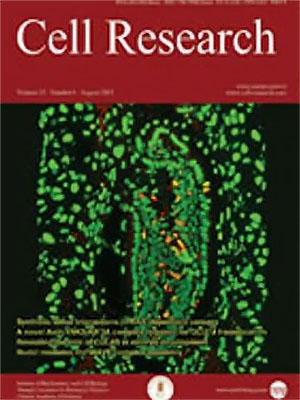Volume 4 Issue 1, June 1994: 47-56
ORIGINAL ARTICLES
Inhibitory effect of parvovirus H-1 on the formation of colonies of human hepatoma cell line in vitro and its tumors in nude mice
Yan ShangJun, ChengWu Ma, XianHua Chen, ShanHong Wan, ZuYu Luo.
Physiology and Biophysics Department, Fudan University, Shanghai 200433,CHina.
Correspondence: ZuYu Luo
The inhibitory effect of parvovirus H-1 on the colonyforming ability in vitro of QGY-7703, a cultured human hepatoma cell line, and on the formation and growth of its tumors in nude mice was studied. With higher multiplicity of infection (MOI) of H-1 given, survival of the QGY-7703 cells was found to be decreased. H-1 DNA amplification level at 30 h postinfection(p.i.) was detected to be 7.4 times higher than that at 2 h by dispersed cells assay, while the cells were delayed to enter into S phase.Plaques were formed in the indicator cells (new-born human kidney cell line, NBK) by progeny H-1 virus particles released from the infected QGY-7703 cells by infectious cell center assay. The formation of tumors in nude mice by QGY-7703 cells which were injected s c at 2 h postinfection was observed to be prevented in 2 groups with given MOI 25 and 50. The tumor growth of MOI 10 group occurred at a lower exponential rate than that of control,after a 20 d latent period. It was evident that parvovirus H-1 exhibited a direct inhibitory effect on the formation and growth of human hepatoma cells in vivo as well as in vitro.
FULL TEXT | PDF
Browse 5971


